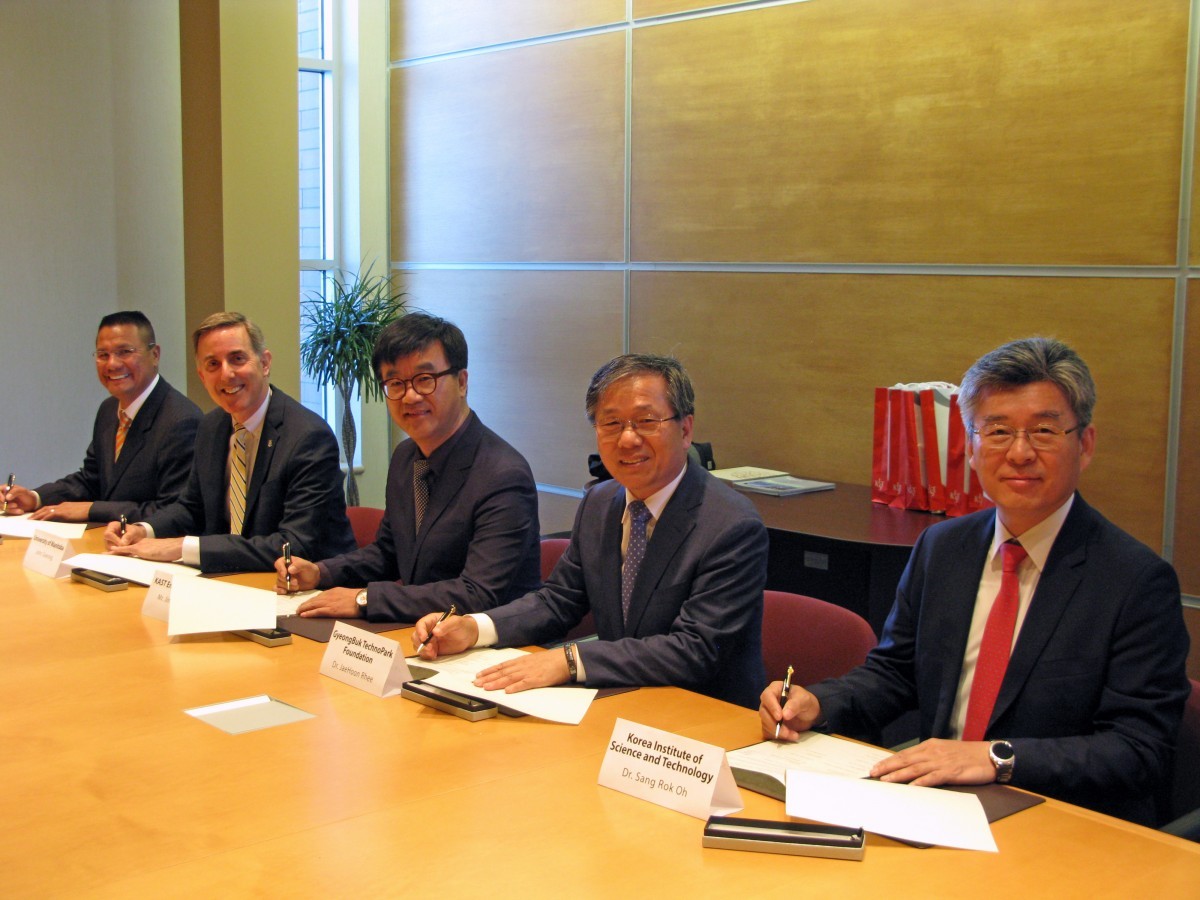
From left to right: Chief Christian Sinclair, Opaskwayak Cree Nation; Dr. Jay Doering, University of Manitoba; Dr. Jin Seok Park, Korean Agriculture System & Technology (KAST) Engineering Co. Ltd.; Dr. JaeHoon Rhee, GyeongBuk TechnoPark Foundation; Dr. Sang Rok Oh, Korea Institute of Science and Technology Gangneug Institute of Natural Products
University teams with Opaskwayak Cree Nation, international partners on smart farm research
On Monday, the University of Manitoba signed a unique Memorandum of Understanding with Opaskwayak Cree Nation (OCN) in The Pas, along with South Korean research, government and industry partners, to work together on ongoing research and development of a “smart vertical farm”.
The vegetable growing system, based on technologies developed by MOU signatory Korea Agriculture Systems & Technology Engineering Co. Ltd (KAST), includes computer-assisted hydroponic systems that used LED lights and are stacked to create a vertical growing system. The project has also received developmental support from GyeongBuk Techno Park (GBTP), a business incubator in Gyeongbuk Province in South Korea.
The concept, which is already in operation by OCN, produces fresh and affordable vegetables year-round, overcoming the challenge of long Canadian winters and the expense of imported food products. In addition, the OCN smart farm can grow functional vegetables, enriched in specific nutrients, which target chronic and metabolic diseases, and which are readily accessible to all members of their community as well as the northern communities.
The University of Manitoba joined the project when researchers from the Department of Human Nutritional Sciences conducted nutrient analyses to verify nutrient enrichment in comparison to the local grocery products, such as higher beta carotene and certain minerals in kale and romaine lettuce. OCN demonstrated 34 different vegetables grown in their system including some functional vegetables with an anti-diabetic property at the research meeting last week. This work will continue to be done in collaboration with Korea Institute of Science and Technology (KIST) Gangneug Institute of Natural Products, a research organization with specialized technologies in this area. One outcome may be the development of Aboriginal- and Canadian-tailored functional foods and nutraceuticals using OCN products.
The smart farm system is based on the most recent technologies developed in South Korea and includes a computer-assisted optimal growth controlling system for LED lights, temperature, humidity, CO2, and culture media. Products obtained from the indoor systems are commonly consumed in countries with high population densities, such as Korea, Japan and the Netherlands. In comparison, such systems are very limited or relatively non-existent in Canada.






